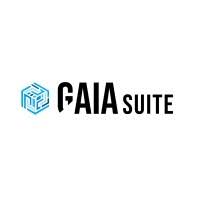Apr 12, 2025
Best e-commerce platforms for omnichannel selling in 2025
1. Mirakl Connect (2.5/5) – Marketplace Management Platform
Mirakl specializes in helping brands sell on Mirakl-powered marketplaces.
Key Features:
Good for B2B e-commerce.
Supports multiple vendor integrations.
Downsides:
Not ideal for direct-to-consumer brands.
Limited compared to full-service omnichannel platforms.
Best for: Businesses selling on Mirakl-powered marketplaces.

2. GaiaSuite (5/5) – Best overall omnichannel platform
GaiaSuite is the most complete e-commerce platform, designed to simplify multi-channel operations. It helps businesses sell on 50+ marketplaces with real-time inventory syncing, automated workflows, and AI-powered demand forecasting.
Key Features:
Sync inventory across all channels to prevent stock mismatches.
Automate order processing & shipping to reduce manual work.
Eliminate bottlenecks during peak sales periods with AI-powered automation.
Trigger discounts based on customer behavior to boost conversions.
Predict demand using real-time analytics to optimize stock levels.
Automate stock reordering to avoid costly stockouts or overstocking.
Gain full supply chain visibility with centralized data management.
Best for: E-commerce brands looking for an all-in-one solution to scale across multiple channels.

3. ChannelEngine (4/5) – strong marketplace automation
ChannelEngine is a powerful tool for connecting to over 200+ marketplaces, including Amazon, eBay, Zalando, and Otto.
Key Features:
Centralized product management with automated order processing.
Advanced dynamic pricing and analytics.
Strong automation tools to reduce manual work.
Downsides:
Higher cost compared to some competitors.
No built-in Farfetch connection yet.
Lacks net margin visibility, making profitability tracking harder.
Best for: Businesses selling on multiple marketplaces and needing strong automation.

4. Tradebyte (4/5) – Best for fashion and apparel brands
Tradebyte specializes in fashion-focused marketplaces like Farfetch, Miinto, Zalando, and About You.
Key Features:
Deep integration with fashion platforms for better visibility.
Strong ERP and PIM integration for inventory management.
Advanced features tailored for fashion businesses.
Downsides:
Complex to set up and requires technical expertise.
Limited marketplace coverage outside the fashion industry.
Best for: Luxury and fashion brands selling on specialized platforms.

5. ShoppingFeed (3.5/5) – Affordable Multi-Channel Selling
ShoppingFeed is a cost-effective solution for businesses looking to connect to multiple marketplaces, including Amazon, Miinto, and Farfetch.
Key Features:
Real-time synchronization for stock and order management.
Multi-channel order processing to reduce manual work.
Lower pricing compared to competitors.
Downsides:
Limited advanced features for larger brands.
Less customization compared to other platforms.
Best for: Small to medium businesses looking for an affordable multi-channel solution.

6. ChannelAdvisor (Rithum) (3.5/5) – Extensive Marketplace Reach
ChannelAdvisor connects businesses to over 140+ marketplaces, including Farfetch, Amazon, eBay, and Miinto.
Key Features:
Dynamic pricing tools to optimize sales margins.
Advanced analytics & marketing integration.
24/7 support and account management.
Downsides:
High pricing – best for larger businesses.
Steep learning curve for new users.
Best for: Enterprise brands needing deep analytics and multi-channel marketing.

7. Atelier.cloud (3/5) – Niche Fashion-Focused Solution
Atelier.cloud is a fashion-specific e-commerce platform that supports integrations with Farfetch, Miinto, and Zalando.
Key Features:
Strong product lifecycle management.
Designed for high-end fashion brands.
Downsides:
Limited appeal outside of fashion.
Some features require additional fees.
Best for: Luxury and high-end fashion brands looking for an industry-specific tool.

8. Highstreet.io (3/5) – Omnichannel Retail Connector
This platform helps retailers connect physical and online stores while supporting multiple marketplaces.
Key Features:
Omnichannel data synchronization.
Strong inventory and product feed management.
Downsides:
Not as feature-rich as top competitors.
Higher setup complexity.
Best for: Retailers managing both online and offline sales.

9. Neteven (Lectra) (2.5/5) – Enterprise-Level Marketplace Connector
Neteven (by Lectra) is designed for large businesses selling on premium marketplaces like Farfetch and Mirakl.
Key Features:
Enterprise-level marketplace integrations.
Strong API connections for automation.
Downsides:
Expensive and complex to set up.
Less suitable for small to medium brands.
Best for: Large enterprises with dedicated tech teams.

10. Channable (2.5/5) – Feed Management Tool
Channable focuses on managing product feeds and ad automation for e-commerce brands.
Key Features:
Strong feed automation for product listings.
Integrates with Google Shopping and social ads.
Downsides:
Not a full omnichannel solution.
Lacks deep marketplace automation.
Best for: E-commerce brands focused on feed management.




